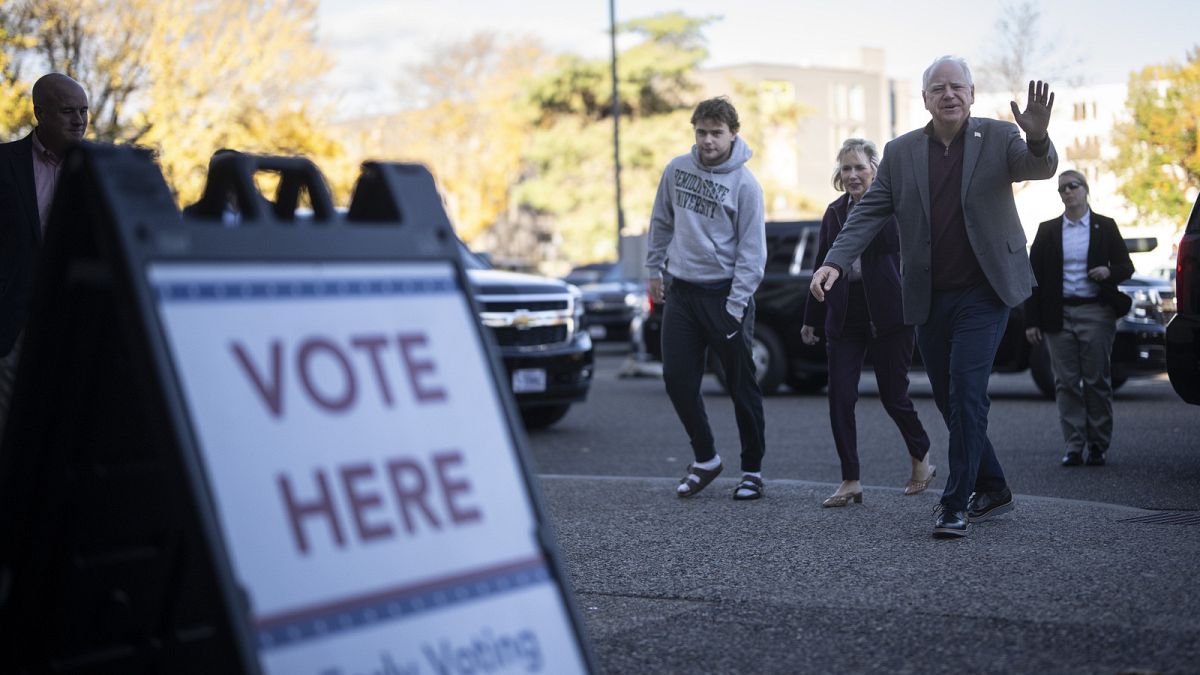US intelligence authorities have linked AI-enabled campaigns smearing presidential candidates to Russia’s hybrid warfare. Tim Walz, the Minnesota governor and Democratic vice-presidential nominee, is the latest victim of Russia’s attempts to interfere in the US presidential elections. Manipulated audio and video of men making baseless claims they were abused by Walz while they were his students ran rampant on social media platforms, with indicators of manipulation consistent with Russian influence efforts. While the posts have been flagged as false, they garnered millions of views just days ahead of the election. Similar campaigns targeting Democratic candidates have also been linked to Russian groups, with Microsoft identifying a notorious Russian operator behind fake conspiracy theories.
US authorities are on high alert for Russian meddling in the upcoming election, with a clear shift in Moscow’s tactics observed. AI is being used to influence electoral results, targeting specific regions and demographics in America to manipulate voter opinions. In addition to discrediting candidates, Russia is engineering campaigns to sow doubt over the integrity of the vote. The FBI confirmed Moscow’s involvement in circulating a video showing mail-in ballots for Trump being destroyed in Pennsylvania. Despite the disinformation reaching millions of voters, authorities remain confident in the election’s fairness, stating that malicious actors would not have a material impact on the outcome.
In addition to Russia, China and Iran have also emerged as major threats to the US election. Chinese operations have targeted down-ballot Republican candidates and members of Congress advocating for anti-Chinese policies. Chinese-backed cyber groups have attempted to tap into the phones of Donald Trump and his running mate, JD Vance. Iranian hackers have been surveilling election-related websites and major media outlets, with the Trump campaign alleging that its internal communications were hacked by Iranian operatives. The Threat Analysis Centre at Microsoft has identified these countries as significant threats in the lead-up to the election.
The use of AI in influencing electoral results and manipulating voter opinions represents a dangerous trend in election interference. As advanced technology becomes more accessible to malicious actors, the potential for widespread disinformation campaigns grows. The challenges posed by foreign interference in elections highlight the need for enhanced cybersecurity measures and vigilance from government authorities. The dissemination of fake news and manipulated content on social media platforms underscores the importance of fact-checking and media literacy in combating misinformation.
The impact of AI-enabled disinformation campaigns on the democratic process cannot be understated. By spreading false narratives and baseless claims, foreign actors aim to undermine trust in political candidates and the electoral system as a whole. The targeting of swing state voters and specific demographics demonstrates a strategic approach to influencing election outcomes. As the US presidential election approaches, US authorities are working diligently to identify and counter foreign interference threats, ensuring the integrity of the electoral process. It is crucial for voters to remain informed and skeptical of online content, particularly as the prevalence of AI-driven disinformation continues to escalate.
In conclusion, the intersection of AI technology and foreign interference poses a significant challenge to the democratic process. The use of manipulated audio and video to spread false information about political candidates represents a new frontier in disinformation tactics. US authorities must remain vigilant in detecting and thwarting attempts by foreign actors to meddle in the election. By enhancing cybersecurity measures and promoting media literacy, the US can better protect the integrity of its electoral system from malicious influence. As the world grapples with the implications of AI-enabled disinformation, it is imperative for governments and citizens alike to prioritize the safeguarding of democratic principles in the digital age.









